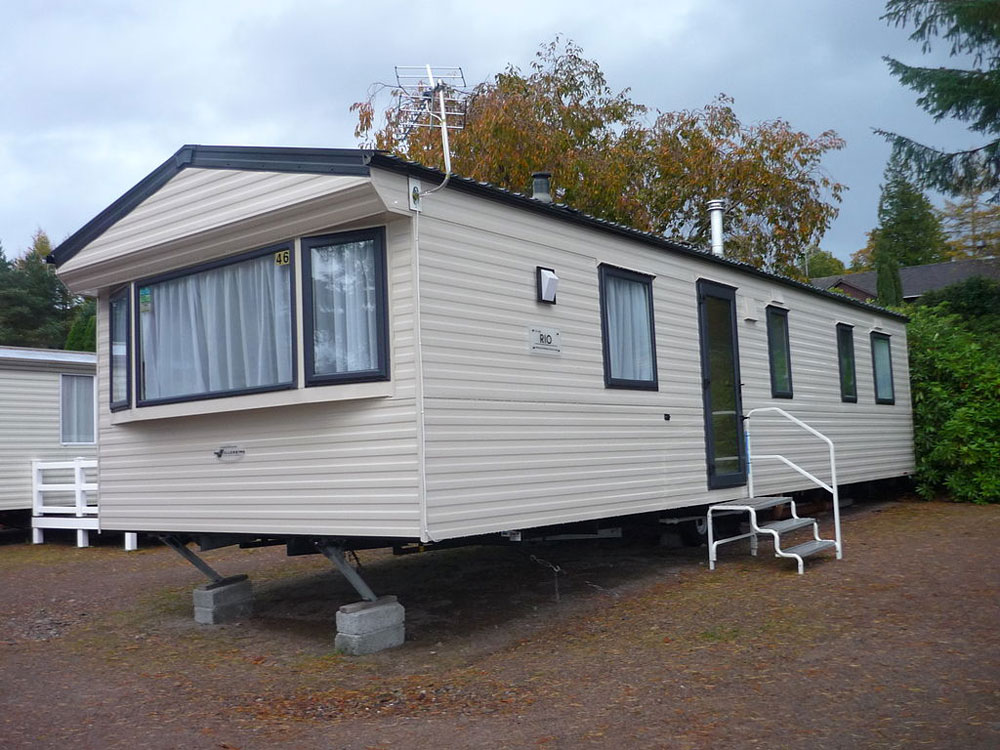
June 19, 2019; The Gazette (Cedar Rapids, Iowa)
In Iowa, Thomas Friestad reports for the Gazette that Havenpark Capital, which “this year bought five Iowa mobile home parks and announced rent hikes ranging from 24 percent to 69 percent,” received a letter last month from Senator Elizabeth Warren (D-MA) and Representative Dave Loebsack (D-IA) protesting what the politicians contend are predatory pricing policies.
Manufactured housing—often known as “mobile homes”—is, reports the Manufactured Housing Institute, “the largest sector of non-subsidized affordable housing in the United States, home to 22 million Americans with a median annual income of less than $30,000.” Unfortunately, mobile homes are not very mobile. As Moving.com explains, “Want to move your mobile home? If you think you can simply hitch it to the back of your truck and take off, think again.” A family seeking to move a “double-wide” mobile home can expect to spend $10,000–$13,000 even for a local move, more than a third of that median income figure.
As a result, most homeowners are stuck where they are. And, if the rent goes up…well, tough cookies. Rent payments come on top of loan payments for the home itself, which, because the land is not owned by the homeowner, carries a higher interest rate, with the loan treated as a chattel loan, like cars, rather than a mortgage.
Historically, mom-and-pop businesses have owned most mobile home parks. Sometimes the sites were well maintained, sometimes not, but rents tended to remain affordable. Now, as Emma Whitford writes in Time Magazine, “As an aging generation of mom-and-pop park owners cashes out, a new breed of investors bent on raising rents to increase returns has bought up a growing share of the market.”
Many investors are indeed eager to buy. As investor site Flipnerd.com explains:
It’s very, very common that we find mobile home parks that have been owned by mom-and-pops. Maybe they’ve owned them for 15, 20, 25, 30 years and sometimes even longer than that to where rents have not been matched to the marketplace. We just bought a property recently where the rents had not been raised for 16 years. This is a very common scenario. This means that there’s a lot of value-add opportunity for you when you’re buying a mobile home park from a mom-and-pop.
Sign up for our free newsletters
Subscribe to NPQ's newsletters to have our top stories delivered directly to your inbox.
By signing up, you agree to our privacy policy and terms of use, and to receive messages from NPQ and our partners.
In short, investors often raise rents fast, spelling “bye-bye affordable housing” for residents, as comedian John Oliver highlighted in a Last Week Tonight segment this past April.
Private Equity Giants Converge on Manufactured Homes, a report released this year by three nonprofits—Manufactured Housing Action, the Private Equity Stakeholder Project and Americans for Financial Reform—maps this rapidly changing industry. The report notes, “The top 50 manufactured housing community owners own around 680,000 home sites. With more that 150,000 home sites, private equity firms and institutional investors now control a substantial portion of manufactured home communities.” Some of these firms have familiar names like Blackstone or Carlyle.
Are there remedies? There are. Sometimes, residents can organize in tenants’ associations and extract concessions that way, as the homeowners in North Liberty and Waukee, Iowa have done. Already they have attracted politician attention, and, as Friestad reports, Havenpark has conceded to staggering rent increases “over two years, starting July 1, with respective monthly increases of $75 and $100 compared to initial planned jumps of $166 and $205.”
A more structural solution would be for residents to own the land through resident-owned cooperatives. As NPQ noted last December, cooperatives allow “residents to stabilize land tenancy rather than being at constant risk of literally having the land sold out from under them.”
Over the past decade, backed by seed funding from the Ford Foundation, a nonprofit known as Resident Owned Communities-USA (ROC-USA)—working with the New Hampshire Community Loan Fund, Prosperity Now, Capital Impact Partners, NeighborWorks America, and a national network of cooperative developers—has developed over 227 co-ops serving more than 14,500 residents—and those numbers are rising. Still, Prosperity Now acknowledges that, “even though there is a growing movement of resident- and nonprofit-owned parks across the nation, 98 percent or so of all manufactured housing communities are privately owned.”
Two challenges, both in Iowa and elsewhere, are legal and financial. Legally, where favorable laws exist, co-op ownership is more common. Nineteen states mandate notice to residents, give residents first chance to purchase, and/or offer incentives to owners to sell to residents. Unfortunately, Iowa is not among those 19 states.
Financial barriers can also be significant. In Iowa, Havenpark claims its rent increases result in part from having had to outbid a developer at one site who would’ve evicted all 300 families. In Missoula, Montana, incentives to sell to residents exist, but rising land values still make conversions challenging; the city’s housing department there is advocating lower cost loan products to “help the ROC model compete more aggressively with private capital investment.”—Steve Dubb













